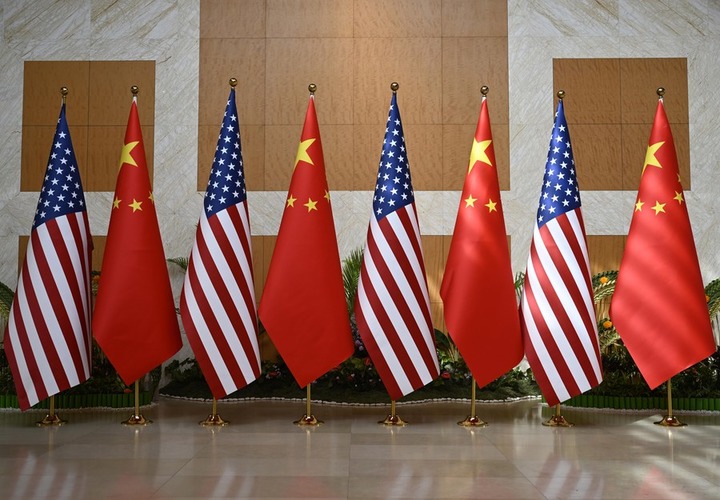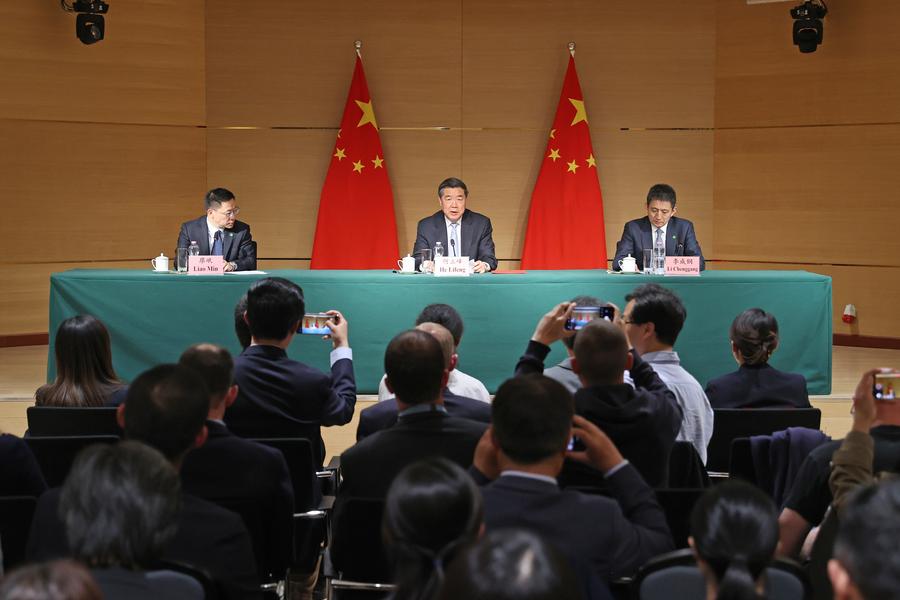
The highest-level strategic communication not only provided strong political guidance for maintaining the momentum of dialogue built by China and the United States in Geneva, but also created an important opportunity for their relations to return to the right track.
Chinese President Xi Jinping on Thursday held phone talks with U.S. President Donald Trump at the latter's request. At a critical juncture when China-U.S. relations and the world landscape are undergoing profound adjustments, this direct communication between the two heads of state was timely, necessary and of far-reaching significance.
In the phone talks, the Chinese president used the metaphor of "recalibrating the direction of the giant ship of China-U.S. relations" to point out the core task facing the current bilateral relations. That is, the two sides should take the helm of the ship, set the right course, and steer clear of various disturbances and disruptions as it sails forward.
The highest-level strategic communication not only provided strong political guidance for maintaining the momentum of dialogue built by China and the United States in Geneva, but also created an important opportunity for their relations to return to the right track.
The recent China-U.S. high-level meeting on economic and trade affairs in Geneva was itself a valuable outcome of the pursuit of rational dialogue. The meeting's substantial progress and joint statement heightened market optimism, which fully proves that the international community highly recognizes the importance of China and the United States resolving differences through dialogue and consultation and jointly maintaining the stability of economic and trade relations. They also lent support to the truth that dialogue and cooperation are the only correct choice for the two countries.
However, after the Geneva meeting, certain U.S. officials have deviated from the correct path in their words and actions. Disregarding facts, they have spread false narratives, smeared the hard-won achievements of the meeting, and successively imposed multiple discriminatory restrictions against China.
Under such circumstances, the phone call between the two leaders carried great significance, and both sides should cherish this opportunity and leverage it as momentum to fully implement the Geneva agreement and steer their economic and trade relations back on track.
Ultimately, the true test lies in whether the U.S. side can honor the agreement with sustained and credible actions and provide the certainty so urgently needed in bilateral relations.
The China-U.S. economic and trade relationship is an inevitable outcome of the optimal allocation of resources in the era of globalization and is, in essence, mutually beneficial. In the past decades, China's development has presented immense market potential and collaborative opportunities to nations worldwide, including the United States, while U.S. capital and technological expertise have likewise played a vital role in advancing China's progress.
Any attempt to deliberately sever the relationship or pursue a zero-sum mindset runs counter to the trend of the times, as it is ultimately self-defeating and harms the interests of all parties involved, including the United States itself.
As the world's two largest economies, the trajectory of China-U.S. relations holds pivotal significance for global stability and prosperity. The saying that "China and the United States both stand to gain from cooperation and lose from confrontation" is a profound conclusion drawn from decades of trials and challenges.

Following the Geneva meeting, China has acted promptly by removing or suspending relevant tariffs, demonstrating its sincere commitment to preserving the outcomes achieved through dialogue. However, China also stands firmly by its principles. It never wavers in its determination to safeguard its core interests and the fundamental well-being of its people, as well as uphold international fairness, justice and the multilateral trading system.
On matters concerning its national sovereignty and dignity, China will never make the slightest compromise or concession. For the U.S. side, the immediate priority is to acknowledge the progress already made, and remove the negative measures taken against China. This represents not only the fulfillment of commitments in the truest sense, but more importantly, an essential prerequisite for advancing practical cooperation.
For the giant ship of China-U.S. relations to sail steadily forward, both nations must expand constructive agendas across broader domains while managing their differences well.
Moreover, preserving the political foundation of China-U.S. relations is fundamental to ensuring this vessel stays on course and avoids hidden reefs. It is imperative to maintain high vigilance and properly address major sensitive issues that could undermine the bedrock of bilateral ties. The United States must handle the Taiwan question with prudence, so that the fringe separatists bent on "Taiwan independence" will not be able to drag China and the United States into dangerous confrontation and even conflict. This is a solemn message sent to the U.S. side.
The phone call between the two leaders represented another critical step by both sides to bridge differences following the Geneva meeting. It is hoped that the U.S. side will work with China to fully translate the common understandings reached between the two heads of state into policies and actions, to ensure that the ship of China-U.S. relations can weather challenges and move forward steadily.
















